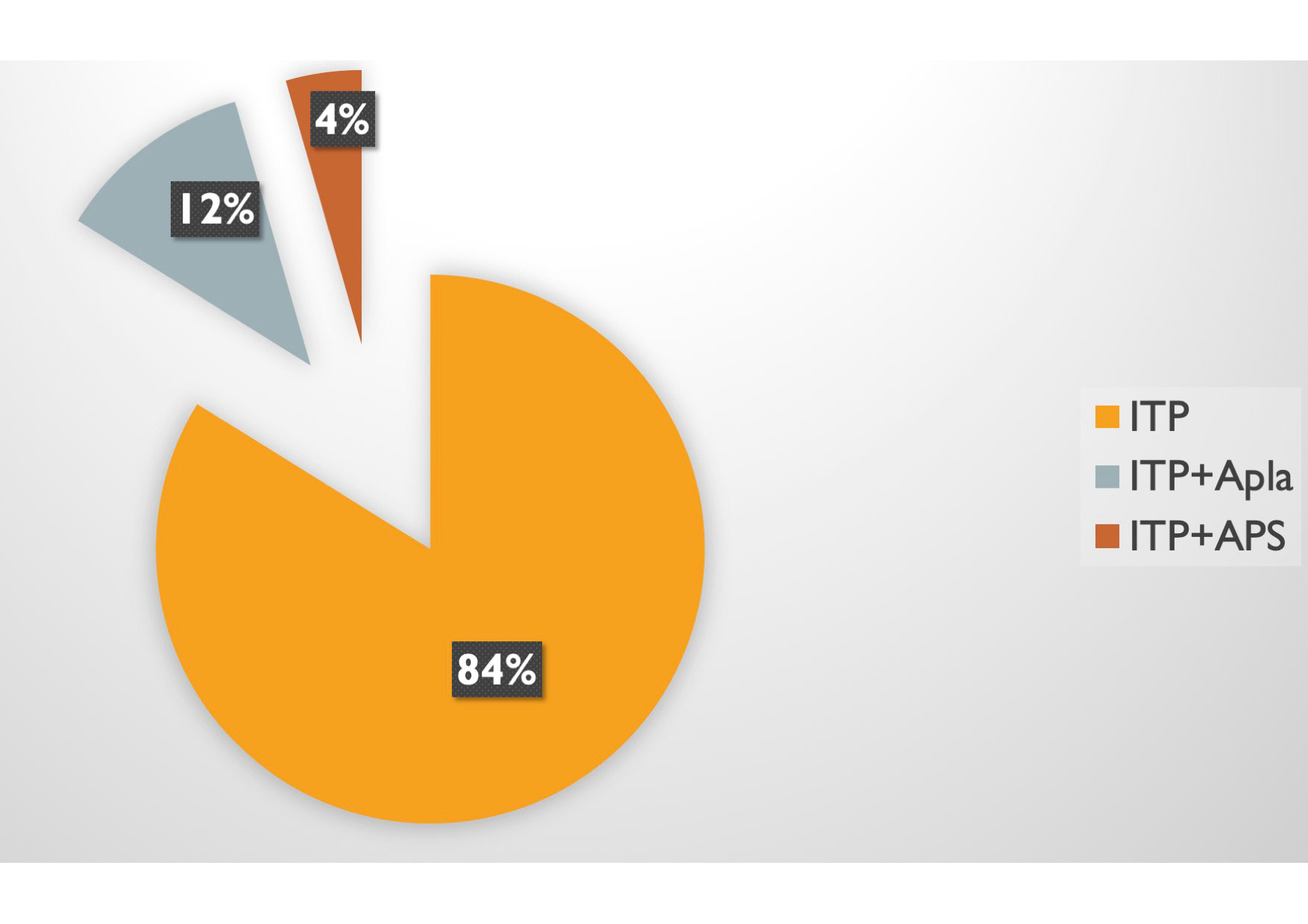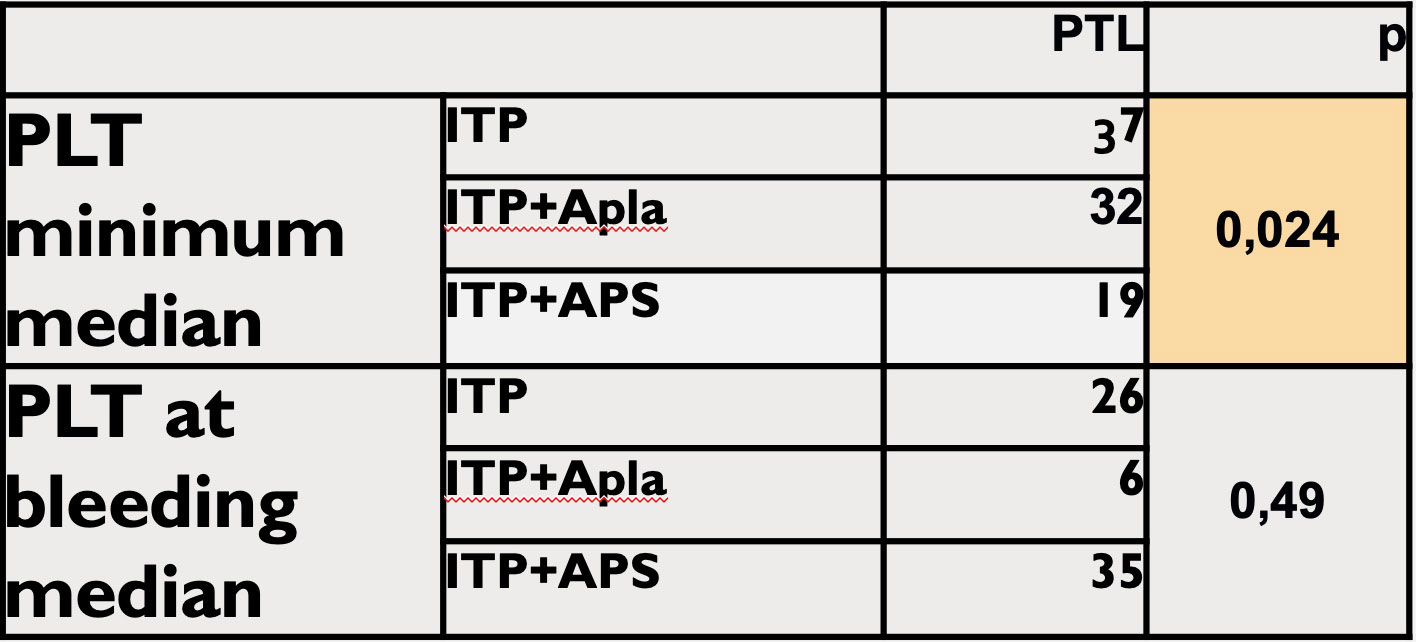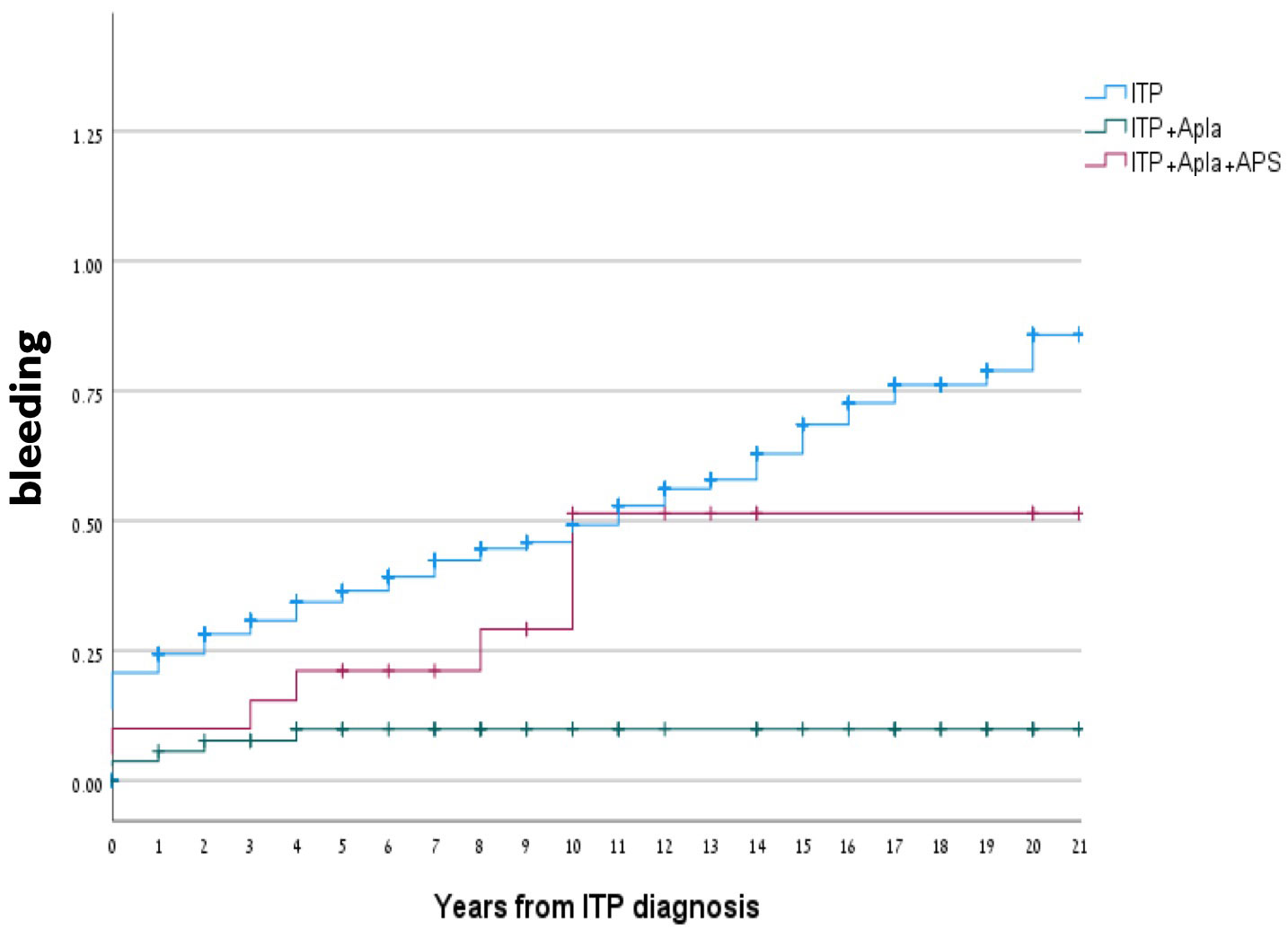Session Information
Session Type: Poster Session B
Session Time: 9:00AM-10:30AM
Background/Purpose: ITP is an autoimmune disease defined as an isolated platelet count. It may be asymptomatic or accompanied by varying degrees of bleeding. APS is also an autoimmune disease characterized by thrombotic events and the presence of aPL: LA, anti-betta 2 Glycoprotein I, and aCL. aPL is found in 25–73% of patients with ITP. Our previous study showed that APS patients have more active platelets. Here, we tested the hypothesis that patients with ITP and aPL have fewer bleeding episodes than patients without aPL, due to increased platelet activity.
Methods: 471 patients with ITP were extracted from the medical center database from January 2000 to May 2021. Patients with secondary ITP, except for those with aPL and APS were excluded. Pregnant women and children were excluded. All patients were tested for aPL. They were divided into 3 groups (ITP only, ITP + aPL, and ITP + APS). In each group, we examined the incidence of bleeding events, the site and severity of bleeding, platelet count (minimum and during the bleeding event), anticoagulation and anti-aggregation therapy (generally and during the bleeding event), ITP treatments, duration of observation, time from the beginning of observation to the bleeding event.
Results: 395 patients (84%) had ITP only, 55 (12%) ITP + aPL, and 21 (4%) ITP + APS. The most common antibody in ITP + aPL and ITP + APS was aCL – 84.2% total. The groups were similar. Significantly fewer bleeding events occurred in the ITP + aPL group (15.5% vs. 43.5%) and there major bleeding and no intracranial hemorrhages. The minimum platelet count was lower in the ITP + APS than in the ITP group (19 vs. 37, respectively). Platelet count during the bleeding event was lower in the ITP + aPL than in the ITP group (6 vs. 26, respectively). Patients in the ITP + aPL group received more anticoagulation and anti-aggregation therapy. and 33% were treated with anticoagulation therapy during bleeding events compared to ITP where 6% received treatment. The mean observation period was 10 years.
Conclusion: This is the first study to show that aPL patients have a significantly lower bleeding incidence than ITP patients without aPL, despite the use of anticoagulation therapy and despite the median platelet count, which was considerably lower in aPL patients. Our results suggest checking aPL in all ITP patients, due to the better prognosis. Further research is needed.
To cite this abstract in AMA style:
Elgardt I, Carmi O, Garra W, Levy Y. Occurrence and Severity of Bleeding in Adults with Immunogenic Thrombocytopenic Purpura with or Without Antiphospholipid Autoantibodies [abstract]. Arthritis Rheumatol. 2022; 74 (suppl 9). https://acrabstracts.org/abstract/occurrence-and-severity-of-bleeding-in-adults-with-immunogenic-thrombocytopenic-purpura-with-or-without-antiphospholipid-autoantibodies/. Accessed .« Back to ACR Convergence 2022
ACR Meeting Abstracts - https://acrabstracts.org/abstract/occurrence-and-severity-of-bleeding-in-adults-with-immunogenic-thrombocytopenic-purpura-with-or-without-antiphospholipid-autoantibodies/



